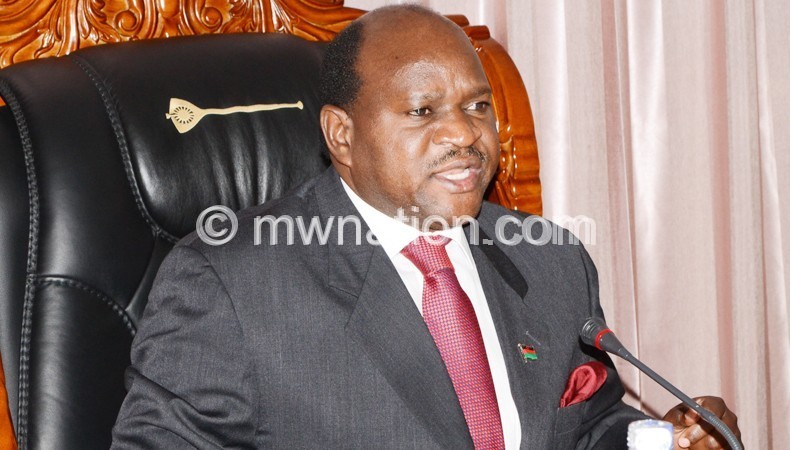Guest Spot Chimunthu Banda: ‘Speaker must be impartial’

With the newly elected members of Parliament (MPs) sworn in, I ask former Speaker Henry Chimunthu-Banda to outline qualities the forthcoming Speaker of the august House needs.
Q.Who should be elected Speaker of Parliament given that most MPs are newcomers?
A.Strictly speaking, any Member of Parliament can be elected Speaker of Parliament so long he or she is not a Minister or Deputy Minister. In other words, even first-timers can be considered for the position. However, considering the pivotal role played by the Speaker in the promotion of parliamentary democracy, it is customary to have the position filled by a dedicated, senior and experienced parliamentarian who has an intimate understanding of the parliamentary life.
Q. Why veterans?
A.This is the trend in most commonwealth jurisdictions. The reasoning is simple. Someone who has spent considerable number of years at the benches of the House will most likely be in a better position to understand the traditions, practices and usages of the House than would be the case with a first-time parliamentarian.
Q. What qualities should someone possess to be an effective Speaker of Parliament?
A.For effective administration of the office, a Speaker must possess such qualities as fairness, good judgment, decisiveness, patience and a good sense of humour.
Q. What about impartiality?
A.Although a Speaker may belong to a political party, he or she must be fair and impartial to sustain the trust of members on both sides of the House. In fact, the hallmark of speakership is impartiality in the execution of official duties. He or she must allow MPs to freely air out their differences of opinions without let or hindrance. Most importantly, a proper balance has to be found between the minority and the majority groups while the minority may have their say, the majority may have their will. The voice of the minority must be heard and protected as the majority carries the day. Additionally, a Speaker must at all times remain cool and calm even when everybody else is losing their heads during heated debates. A Speaker must not be lacking in good temper and good humour which are key ingredients for quelling volatile situations in the House.
Q.What are the core functions of the Speaker?
A.
Parliamentary traditions and practices all over the world are such that a person elected as a Speaker is treated with deep reverence inside and outside the Chamber. He or she is in control of every facet of parliamentary activities. It is, therefore, reasonable to suppose that anything parliamentary is within the jurisdiction of the Speaker. Be that as it may, the Speaker’s functions may be grouped into three broad categories. First, he or she presides over deliberations in the House, interprets and enforces rules for the preservation of order and decorum. During mayhem and disorder in the House, he or she has the authority to bring sanity. The Speaker is the arbiter of the House. Second, he or she has political responsibility to serve MPs and staff by providing all the required facilities in the execution of their official functions. Irrespective of the political party an MP belong to, he or she look up to the Speaker for support. Third, he or she is the representative and spokesperson of the institution of Parliament to outside the precincts of Parliament. He or she is also the spokesperson between the State and the institution of Parliament. It is also the duty of the Speaker to represent Parliament in such bodies as the Commonwealth Parliamentary Association, Pan African Parliament and Sadc Parliamentary Forum, among others.
Q. Some commentators have decried the practice of a Speaker maintaining ties with his or her political party. What’s your take?
A.
I am aware of the raging debate on this matter in the country. Advocates of this proposition argue that by severing political ties with his or her party, a Speaker will not only be neutral but will be seen to be neutral. The mere fact that a Speaker is a member of a political party, that in itself, becomes a fertile ground for unending suspicion on the impartiality of a Speaker. These are valid observations and are worth further interrogation at national fora. However, it may be worth mentioning that our current system which allows a Speaker to be politically affiliated is supported by the Constitution. In line with the prevailing situation, some conventions have developed to secure the impartiality of the office holder. For instance, he or she does not attend political party caucuses and exercises restraint in political speeches made inside as well as outside Parliament. Being a member of a party helps the Speaker to seek re-election at constituency level during subsequent elections.





